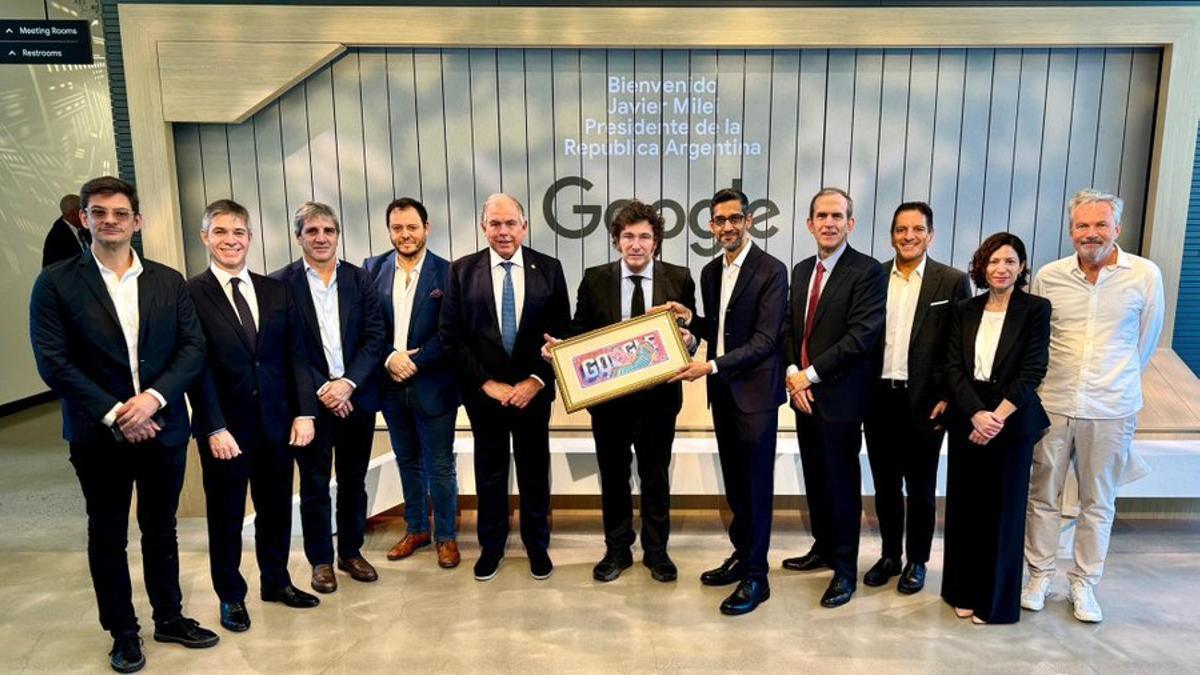The President of Argentina, Javier Milei, is on an official visit to the United States, seeking to strengthen bilateral relations and attract strategic investments. However, one of the most controversial aspects of his trip is the proposal to collaborate with Google on an experimental project to evaluate whether artificial intelligence (AI) can play a significant role in a country's governance.
Handing Over Power to a Technological Oligopoly
Milei's initiative, although innovative, poses serious risks. The possibility of allowing a foreign tech company like Google to intervene in Argentina's executive, legislative, and judicial processes is alarming. This not only compromises national sovereignty but also grants unprecedented power to a technological oligopoly, allowing it to influence critical decisions that affect all citizens.
Sovereignty of Human and National Data
Data sovereignty is a vital issue in the 21st century. Personal and national data are strategic resources that must be protected. In the hands of a company like Google, this data could be used for commercial purposes or even to influence government policies. History has shown that large tech corporations do not always act in the best interest of citizens, often prioritizing their own economic benefits over public welfare.
Risks of Technological Dependence
Allowing AI managed by a foreign entity to access public administration could dehumanize decision-making and create dangerous technological dependence. AI algorithms, though advanced, are not infallible and are subject to biases and errors. Moreover, the lack of transparency in how these systems are developed and operated can lead to opaque and potentially unjust decisions.
Interference in Governance
The impact of handing control to a tech company could extend to all levels of governance. It would not only be about optimizing bureaucratic processes but could also involve direct influence on legislation and justice. This poses a threat to the independence of these powers and could erode public trust in Argentina's democratic institutions.
A Necessary Debate
Milei's proposal must be evaluated with rigorous scrutiny and broad public debate. Technological innovation has the potential to improve governmental efficiency, but it should not compromise the sovereignty and fundamental rights of citizens. It is crucial that any initiative in this direction includes strict safeguards to protect privacy, transparency, and the independence of data and governmental decisions.
While Javier Milei's attempt to position Argentina as a leader in AI may seem like a progressive step, the risks associated with handing over so much power to a foreign tech company are too severe to ignore. Data sovereignty and the integrity of governance must be prioritized in any discussion about the country's technological future.


Comments